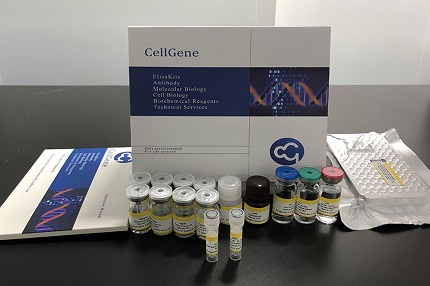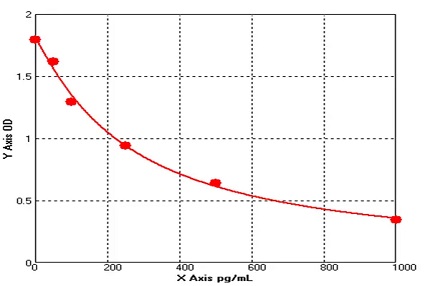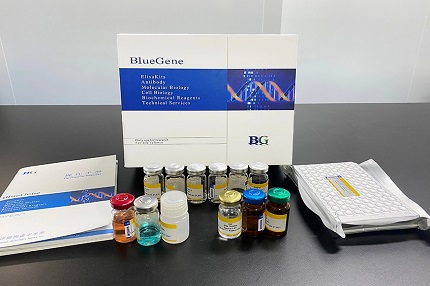E02T0039 Rat Triiodothyronine ELISA kit
The Rat Triiodothyronine ELISA kit can be used to identify samples from the rat species. Triiodothyronine can also be called 3,3',5-Triiodo-L-Thyronine, Liothyronine, Cytomel, Tertroxin, T3.
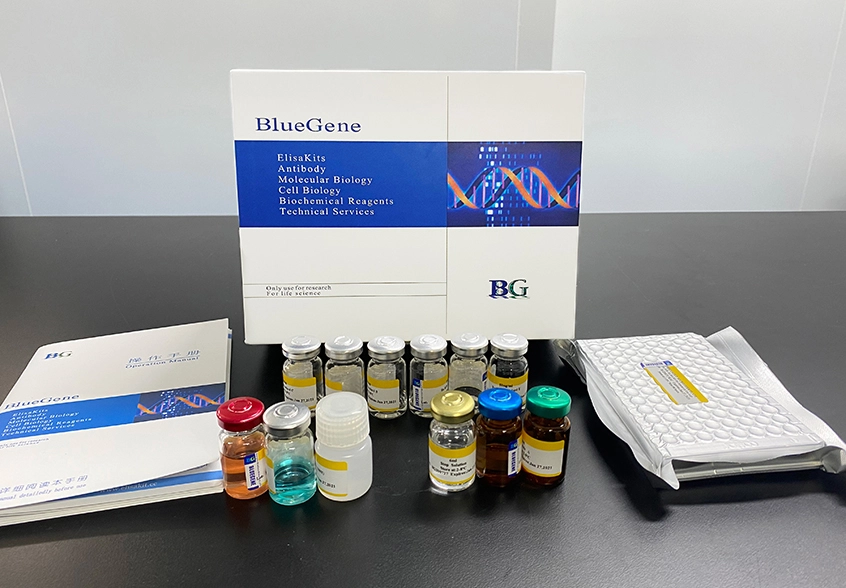

E02T0039 Rat Triiodothyronine ELISA kit
The Rat Triiodothyronine ELISA kit can be used to identify samples from the rat species. Triiodothyronine can also be called 3,3',5-Triiodo-L-Thyronine, Liothyronine, Cytomel, Tertroxin, T3.
Product Information | |
Cat. No. | E02T0039 |
Product Name | Rat Triiodothyronine ELISA kit |
Species | Rat |
Product Size | 48 Tests / 96 Tests |
Concentration | 50-1000 ng/mL |
Sensitivity | 1.0 ng/mL |
Principal | Competitive ELISA |
Sample Volume | 100 ul |
Sample Type | Serum, plasma, cell culture supernatants, body fluid and tissue homogenate |
Assay Time | 90 minutes |
Platform | Microplate Reader |
Conjugate | HRP |
Detection Method | Colorimetric |
Storage | 2-8°C |
Kit Components | ||
MATERIALS | SPECIFICATION | QUANTITY |
MICROTITER PLATE | 96 wells | stripwell |
ENZYME CONJUGATE | 6.0 mL | 1 vial |
STANDARD A (0.5mL) | 0 ng/mL | 1 vial |
STANDARD B (0.5mL) | 50 ng/mL | 1 vial |
STANDARD C (0.5mL) | 100 ng/mL | 1 vial |
STANDARD D (0.5mL) | 250 ng/mL | 1 vial |
STANDARD E (0.5mL) | 500 ng/mL | 1 vial |
STANDARD F (0.5mL) | 1000 ng/mL | 1 vial |
SUBSTRATE A | 6 mL | 1 vial |
SUBSTRATE B | 6 mL | 1 vial |
STOP SOLUTION | 6 mL | 1 vial |
WASH SOLUTION (100 x) | 10 mL | 1 vial |
BALANCE SOLUTION | 3 mL | 1 vial |
Principle of the Assay |
T3 ELISA kit uses an anti-T3 antibody and an T3-HRP conjugate in a competitive enzyme immunoassay method. T3-HRP conjugate is incubated with the assay sample and buffer in a pre-coated plate for one hour. The wells are decanted and washed five times when the incubation period is over. The HRP enzyme substrate is then incubated in the wells. The result of the enzyme-substrate reaction is a complex that is blue in hue. The process is finally stopped by adding a stop solution, causing the solution to turn yellow. In a microplate reader, the color intensity is measured spectrophotometrically at 450 nm. Due to competition for the anti-T3 antibody binding site between T3 from samples and T3-HRP conjugate, the intensity of the color is inversely proportional to the concentration of T3. Since the number of sites is limited, as more sites are occupied by T3 from the sample, fewer sites are left to bind T3-HRP conjugate. A standard curve is plotted relating the intensity of the color (O.D.) to the concentration of standards. The T3 concentration in each sample is interpolated from this standard curve. |
Coefficient of Variance | Intra Variation% <10% | |
Inter Variation% <12% | ||
Recovery | 95-102% | |
Linearity | Diluent Ratio | Range % |
1:2 | 93-105 | |
1:4 | 88-106 | |
1:8 | 86-108 | |
Specificity/Cross-reactivity | No significant cross-reactivity or interference between T3 and analogues was observed. | |
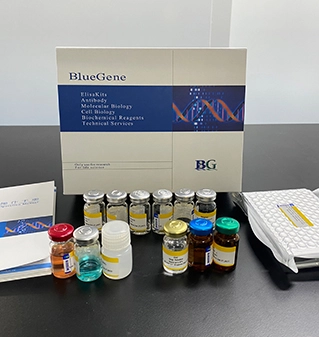
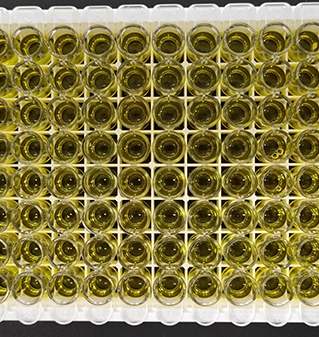

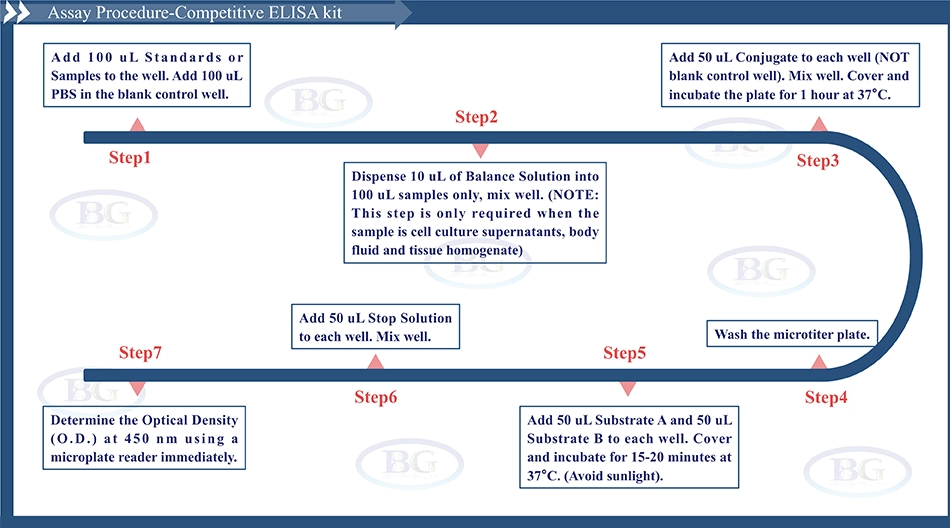
E02T0039 has been referenced in the below publications:
Oral exposure to dibutyl phthalate exacerbates chronic lymphocytic thyroiditis through oxidative stress in female Wistar rats.
The Study of Melatonin Regulating Lipid Metabolismin Male Rats.
Exposure to DBP and high iodine aggravates autoimmune thyroid disease through increasing the levels of IL-17 and thyroid-binding globulin in wistar rats.
Effect of melatonin on visceral fat deposition, lipid metabolism and hepatic lipo-metabolic gene expression in male rats.
Related Bluegene Biotech Products

